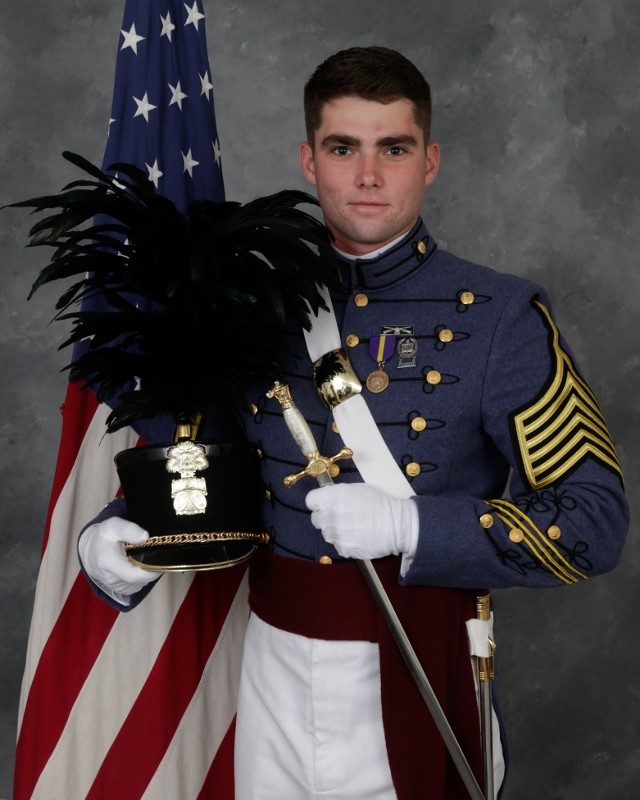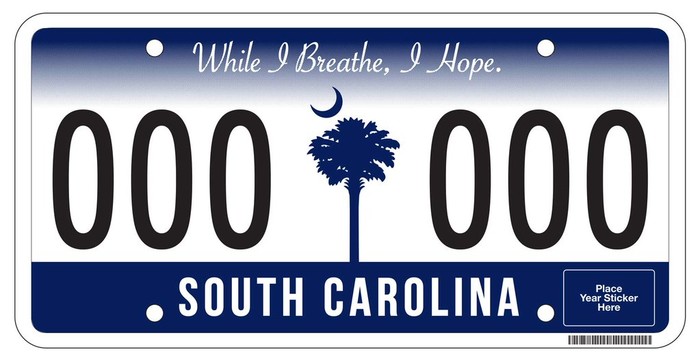
The almost 175-year-old military structure at The Citadel comprises much of what is essentially a leadership laboratory: the cadets manage the undergraduate student body called the South Carolina Corps of Cadets. Cadets can work to attain a variety of leadership opportunities during their four years in the Corps, with the highest position being that of regimental commander. It is a demanding job and a very visible role. Cadet Kevin MacDonald, who is from Hilton Head, South Carolina, holds that position for the 2016-17 academic year.
MacDonald commands approximately 2,300 cadets. His main job is to train the cadets in The Citadel’s four pillars: academics, military, physical effectiveness and moral/ethical. He was selected after a long and rigorous process, as all of the regimental commanders have been for more than a century.
MacDonald is a Business Administration major who attends The Citadel on an Army scholarship and is expected to commission as an officer in the Army upon graduation. He is also a member of the elite Summeral Guards. The following interview with MacDonald (KM) was conducted by Regimental Public Affairs NCO Tristan Arrowood (TA).
TA: Who has influenced you most in your life and how?
KM: My father taught me that it is not so much what you do in life; it’s how you do it. That it is not what you endure; it is how you endure it.
TA: What led you to choose The Citadel?
KM: I wanted to serve in the military, but I have always thrived when I am around people with similar mindsets. Therefore, instead of going to a larger college and finding a small group I could get along with, I went to a school where the majority of the students had the same goals.
TA: Why did you pursue the very demanding position of regimental commander?
KM: I have always approached things with the attitude that if I am going to commit to be a part of something, I want to make an impact. If I was going to be a part of the Corps, then why not command it?
TA: What advice would you give to incoming freshmen at The Citadel and at other institutions?
KM: The second you walk through the gates, make yourself a vital part of a team. Here that means your company, your battalion, and the Corps. Whatever you accomplished beforehand needs to be put to the side with a focus on the objectives of the group as a whole. Developing yourself as a student, a future professional, and a community contributor will help your team, but always remember you are one of many parts influencing the greater good.
TA: How would you describe your leadership style?
KM: I work to empower those I help lead in the Corps to make decisions on their own. They have earned their positions for a reason and have the capability and experience to facilitate the team’s success.
TA: What do you intend to do in the Army?
KM: I was branched as an engineer, and I will go to training after I get my commission in the spring.
TA: What is one of the most important things you want to leave behind from your performance as regimental commander?
KM: My replacement. I hope I prove to be a good trainer for the next regimental commander to ensure that person’s success at leading our cadets next year.
TA: What lessons has this college, and specifically your positions in it taught you?
KM: You can’t do anything by yourself. You must always work with your peers, superiors, and other teammates at all levels to achieve the greatest impact.
Tristan Arrowood is the 2016-17 Regimental Public Affairs NCO for the Corps of Cadets. He also serves as head usher and chaplain for the Protestant color guard for chapel related services. He is scheduled to graduate in May 2018 with a degree in biology.
Comments
Rail station is improving day
Rail station is improving day by day with the help of the government.The way of creating http://buycheapdissertationonline.com/ for the development where the people would like to learn more details. The development of this rail station should be performed.

The almost 175-year-old military structure at The Citadel comprises much of what is essentially a
leadership laboratory: the cadets manage the undergraduate student body called the South Carolina Corps of Cadets. Cadets can work to attain a variety of leadership opportunities during their four years in the Corps, with the highest position being that of regimental commander. It is a demanding job and a very visible role. Cadet Kevin MacDonald, who is from Hilton Head, South Carolina, holds that position for the 2016-17 academic year.
MacDonald commands approximately 2,300 cadets. His main job is to train the cadets in The Citadel’s four pillars: academics, military, physical effectiveness and moral/ethical. He was selected after a long and rigorous process, as all of the regimental commanders have been for more than a century.
MacDonald is an engineering major who attends The Citadel on an Army scholarship and is expected to commission as an officer in the Army upon graduation. He is also a member of the elite Summeral Guards. The following interview with MacDonald (KM) was conducted by Regimental Public Affairs NCO Tristan Arrowood (TA).
TA: Who has influenced you most in your life and how?
KM: My father taught me that it is not so much what you do in life; it’s how you do it. That it is not what you endure; it is how you endure it.
TA: What led you to choose The Citadel?
KM: I wanted to serve in the military, but I have always thrived when I am around people with similar mindsets. Therefore, instead of going to a larger college and finding a small group I could get along with, I went to a school where the majority of the students had the same goals.
TA: Why did you pursue the very demanding position of regimental commander?
KM: I have always approached things with the attitude that if I am going to commit to be a part of something, I want to make an impact. If I was going to be a part of the Corps, then why not command it?
TA: What advice would you give to incoming freshmen at The Citadel and at other institutions?
KM: The second you walk through the gates, make yourself a vital part of a team. Here that means your company, your battalion, and the Corps. Whatever you accomplished beforehand needs to be put to the side with a focus on the objectives of the group as a whole. Developing yourself as a student, a future professional, and a community contributor will help your team, but always remember you are one of many parts influencing the greater good.
TA: How would you describe your leadership style?
KM: I work to empower those I help lead in the Corps to make decisions on their own. They have earned their positions for a reason and have the capability and experience to facilitate the team’s success.
TA: What do you intend to do in the Army?
KM: I was branched as an engineer, and I will go to training after I get my commission in the spring.
TA: What is one of the most important things you want to leave behind from your performance as regimental commander?
KM: My replacement. I hope I prove to be a good trainer for the next regimental commander to ensure that person’s success at leading our cadets next year.
TA: What lessons has this college, and specifically your positions in it taught you?
KM: You can’t do anything by yourself. You must always work with your peers, superiors, and other teammates at all levels to achieve the greatest impact.
Tristan Arrowood is the 2016-17 Regimental Public Affairs NCO for the Corps of Cadets. He also serves as head usher and chaplain for the Protestant color guard for chapel related services. He is scheduled to graduate in May 2018 with a degree in biology.